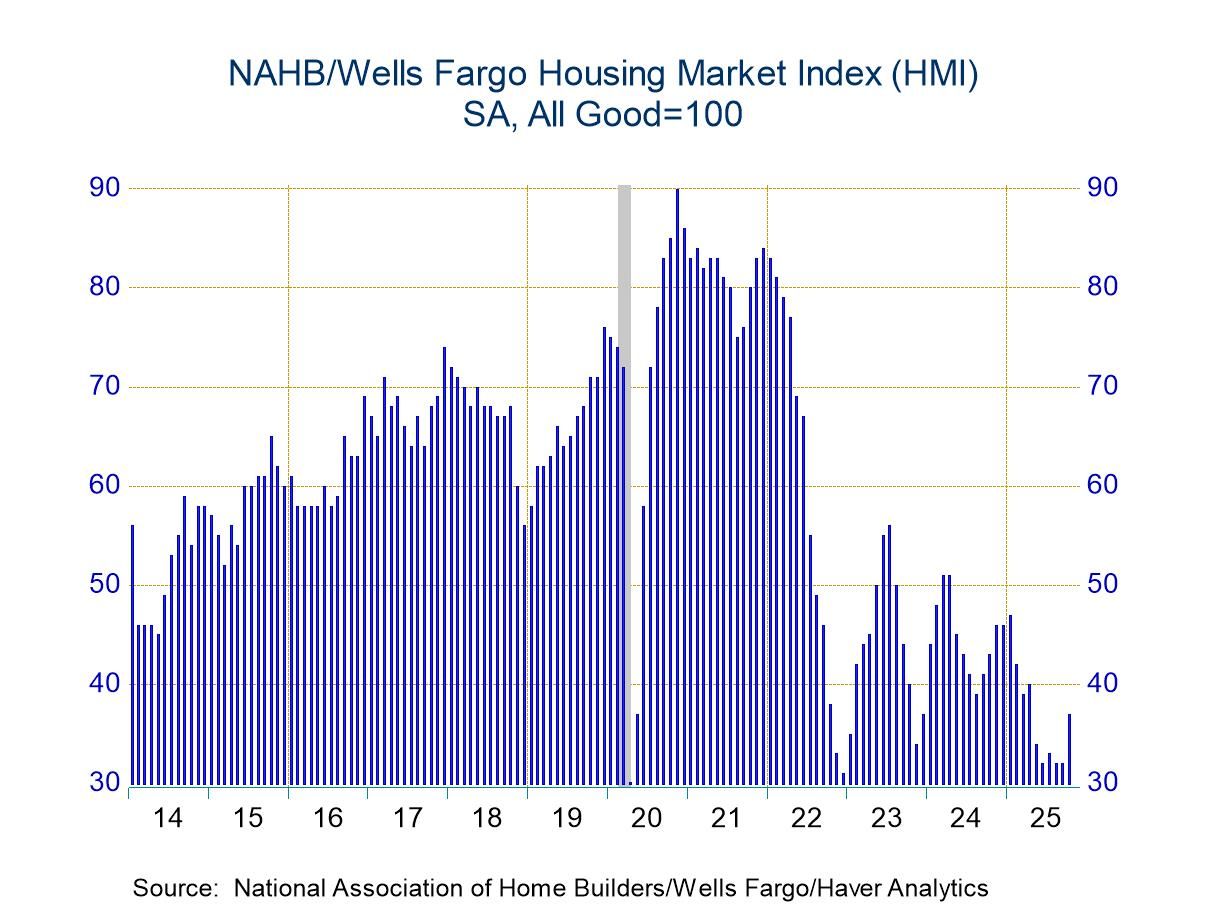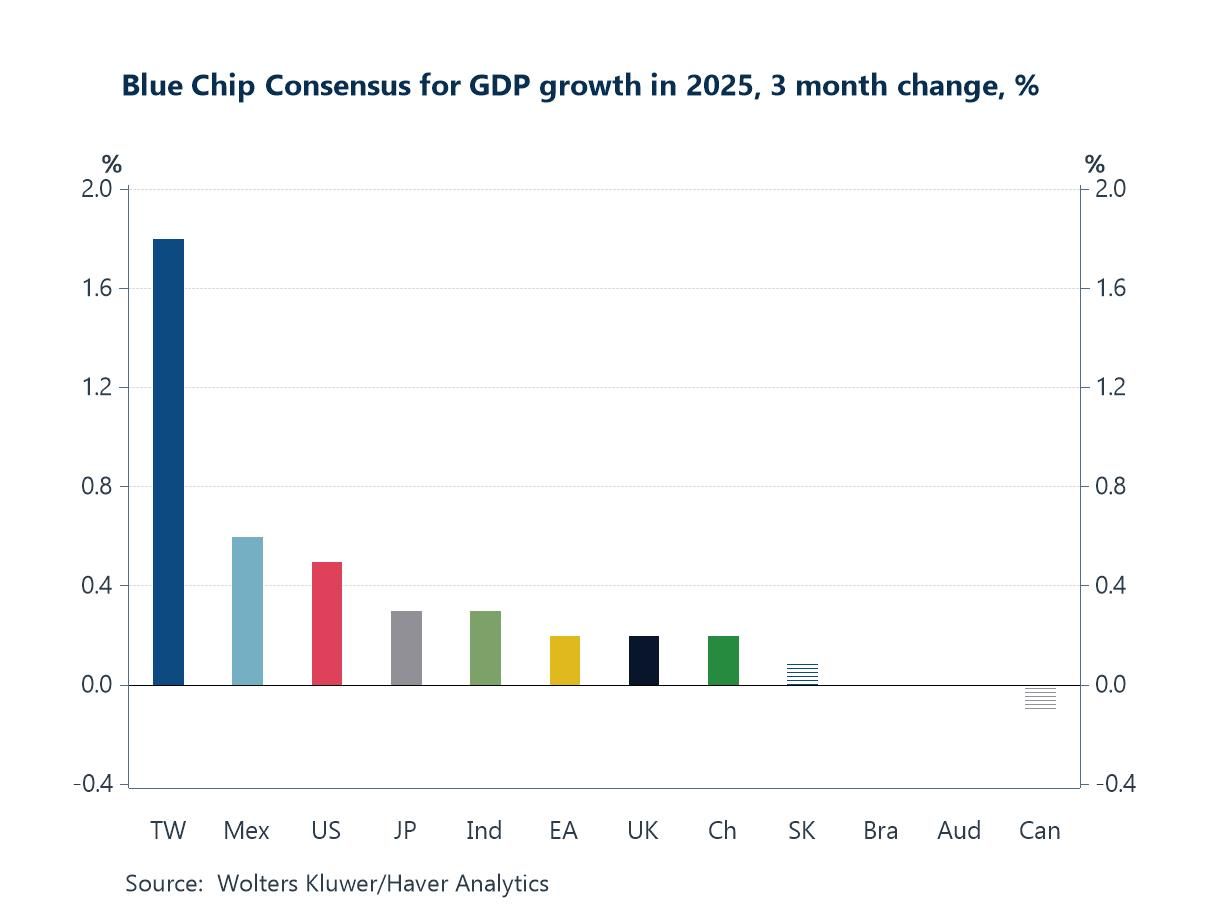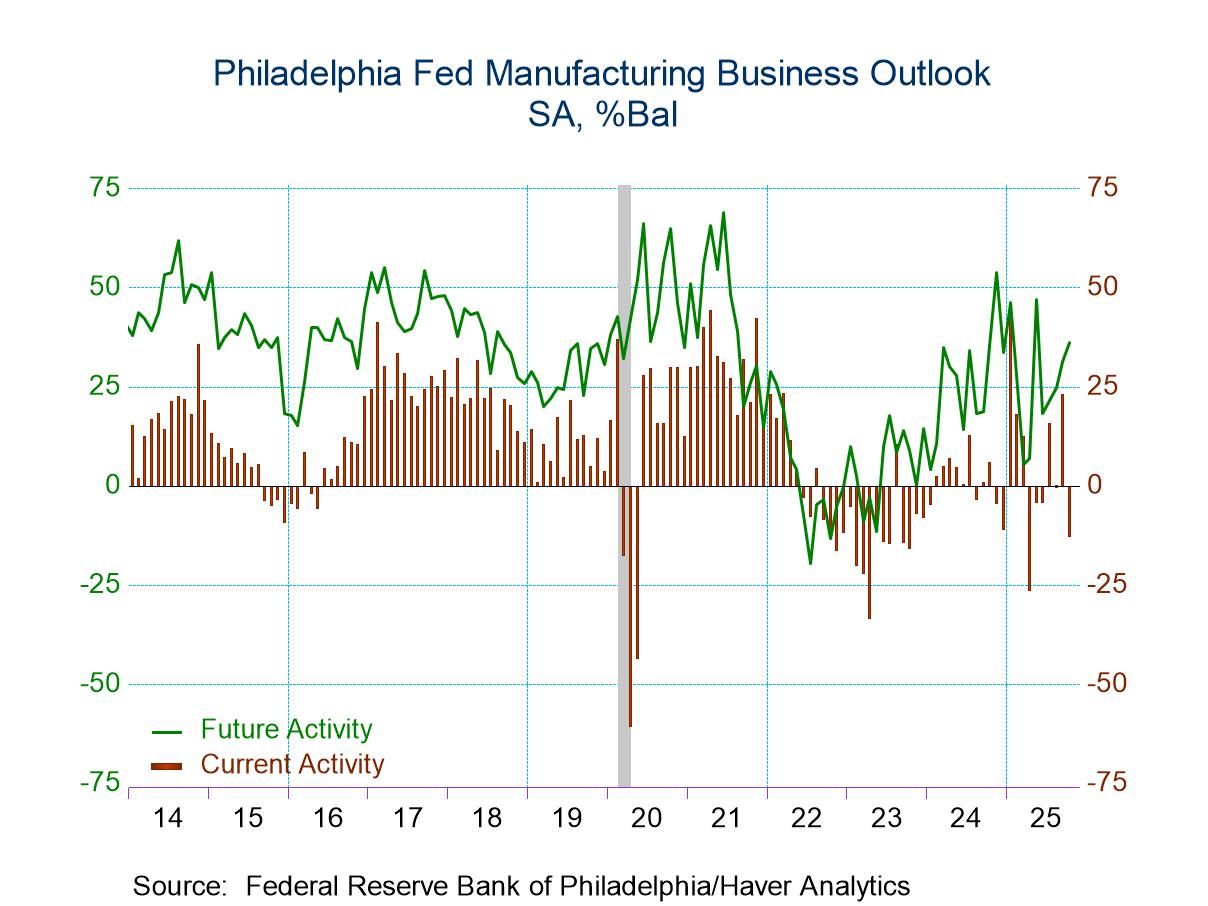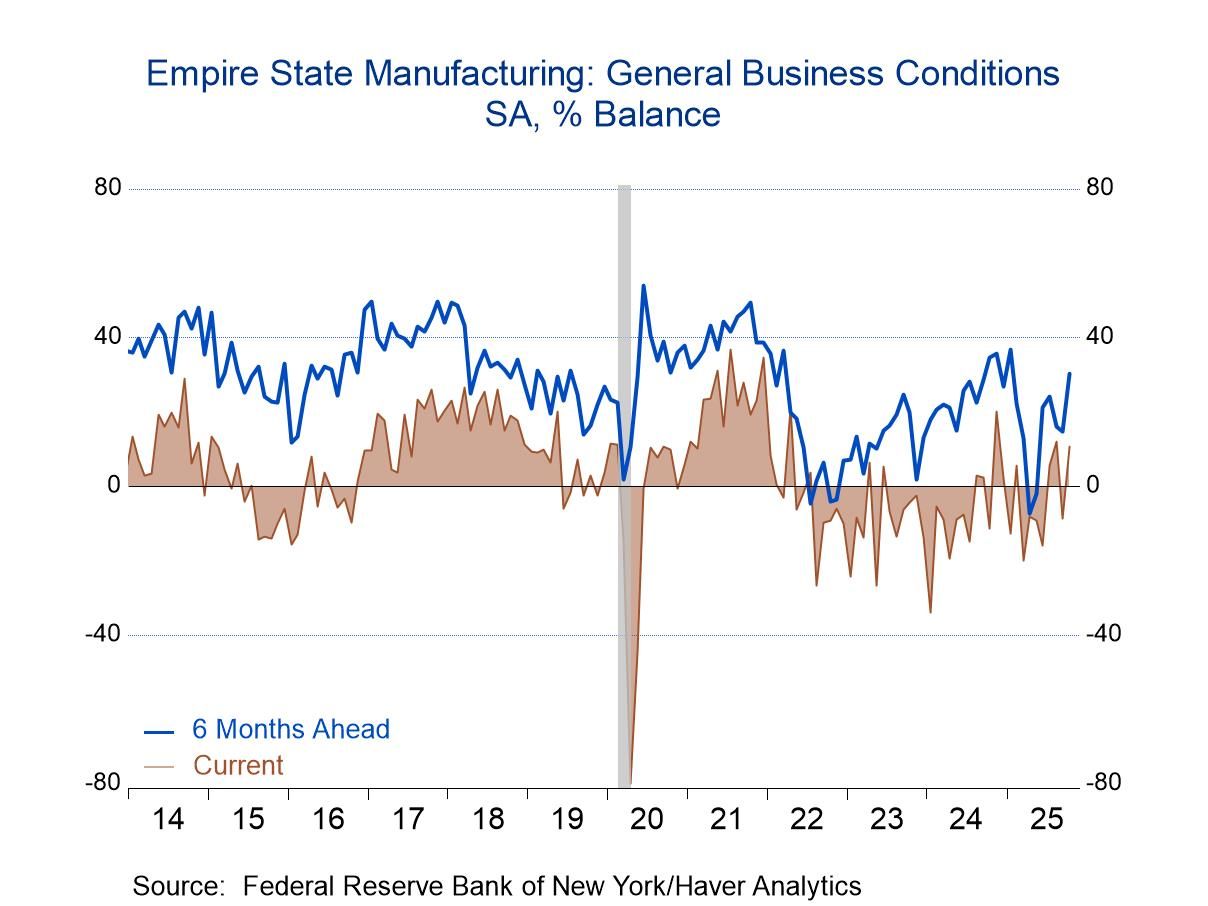 Global| Aug 19 2003
Global| Aug 19 2003Housing Starts Highest Since 1986
by:Tom Moeller
|in:Economy in Brief
Summary
Housing starts were stronger than expected last month, rising 1.5% m/m to 1.87 mil. units. Consensus expectations had been for starts of 1.78 mil. July was the highest level of starts since April 1986. Starts had surged in May and [...]
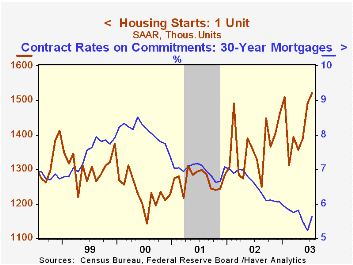
Housing starts were stronger than expected last month, rising 1.5% m/m to 1.87 mil. units. Consensus expectations had been for starts of 1.78 mil. July was the highest level of starts since April 1986. Starts had surged in May and June and the June level was revised up.
Single family starts rose 1.9% m/m to the highest level since November 1978. So far this year single family starts are up 4.5% from the 2002 average. June starts were revised up.
Multi-family starts fell 0.6% last month for the second consecutive monthly decline. June multi family starts were revised up. Multi-family starts this year are down 4.3% versus 2002.
Building permits fell 2.4%, the first m/m decline in four months. Permits for 5 or more structures fell 12.2% (-22.2% y/y) while single family permits were off a slight 0.3% (8.5% y/y).
| Housing Starts (000s, AR) | July | June | Y/Y | 2002 | 2001 | 2000 |
|---|---|---|---|---|---|---|
| Total | 1,872 | 1,845 | 12.4% | 1,711 | 1,601 | 1,573 |
| Single Family | 1,521 | 1,492 | 14.4% | 1,364 | 1,272 | 1,232 |
| Multi Family | 351 | 353 | 4.2% | 347 | 330 | 341 |
| Building Permits | 1,780 | 1,823 | 2.2% | 1,750 | 1,637 | 1,598 |
by Tom Moeller August 19, 2003
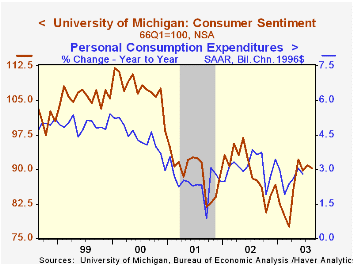
The University of Michigan’s consumer sentiment index dipped a slight 0.8% in mid-August to 90.2 versus 90.9 in July. A reading of 91.0 had been expected by the Consensus of economists.
A 1.6% decline versus July in the reading for Current Economic Conditions led the dip in the overall Sentiment index. Nevertheless, that reading was up 2.0% y/y.
Consumer Expectations fell by a lesser 0.1% (3.7% y/y) but it was the third consecutive monthly decline.
Over the last ten years there has been a 69% correlation between the level of consumer sentiment and the y/y change in real PCE. The correlation over the last five years has been 82%.
The University of Michigan survey is not seasonally adjusted.It is based on telephone interviews with 250 households nationwide on personal finances and business and buying conditions. The survey is expanded to a total of 500 interviews at month end.
| University of Michigan | Mid-August | July | June | 2002 | 2001 | 2000 |
|---|---|---|---|---|---|---|
| Consumer Sentiment | 90.2 | 90.9 | 89.7 | 89.6 | 89.2 | 107.6 |
by Tom Moeller August 19, 2003
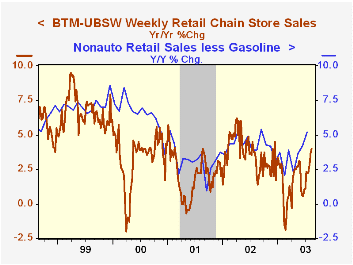
Chain store sales fell 0.5% last week according to the BTM-UBSW survey. The decline followed a slight uptick the prior week and a 0.8% surge in the opening week of the month.
Despite the latest dip, the level of sales so far this month were 1.0% above the July average. July sales rose 1.4% from June.
During the last five years there has been a 62% correlation between the year-to-year percent change in chain store sales and the change in nonauto retail sales less gasoline.
The BTM-UBSW retail chain-store sales index is constructed from the sales results reported by seven retailers: Dayton Hudson, Federated, Kmart, May, J.C. Penney, Sears and Wal-Mart.
| BTM-UBSW (SA, 1977=100) | 8/16/03 | 8/9/03 | Y/Y | 2002 | 2001 | 2000 |
|---|---|---|---|---|---|---|
| Total Weekly Retail Chain Store Sales | 426.2 | 428.3 | 4.0% | 3.6% | 2.1% | 3.4% |
Tom Moeller
AuthorMore in Author Profile »Prior to joining Haver Analytics in 2000, Mr. Moeller worked as the Economist at Chancellor Capital Management from 1985 to 1999. There, he developed comprehensive economic forecasts and interpreted economic data for equity and fixed income portfolio managers. Also at Chancellor, Mr. Moeller worked as an equity analyst and was responsible for researching and rating companies in the economically sensitive automobile and housing industries for investment in Chancellor’s equity portfolio. Prior to joining Chancellor, Mr. Moeller was an Economist at Citibank from 1979 to 1984. He also analyzed pricing behavior in the metals industry for the Council on Wage and Price Stability in Washington, D.C. In 1999, Mr. Moeller received the award for most accurate forecast from the Forecasters' Club of New York. From 1990 to 1992 he was President of the New York Association for Business Economists. Mr. Moeller earned an M.B.A. in Finance from Fordham University, where he graduated in 1987. He holds a Bachelor of Arts in Economics from George Washington University.



